- Home
- Philip Pullman
Fairy Tales from the Brothers Grimm Page 8
Fairy Tales from the Brothers Grimm Read online
Page 8
The witch knew at once what that meant.
‘You wicked girl!’ she said. ‘You’ve deceived me! All this time you’ve been entertaining a lover, and now we see the consequences! Well, I shall put an end to that.’
She took Rapunzel’s beautiful hair in her left hand and snatched up some scissors with her right, and snip-snap! and down fell the lustrous strands up which the prince had climbed.
The witch then transported Rapunzel by magic to a wild place far away. There the poor young woman suffered greatly and, after a few months, gave birth to twins, a boy and a girl. They lived like tramps: they had no money, no home, and only what they could beg from passers-by who heard Rapunzel sing. They were often hungry: in the winter they nearly perished of the cold, and in the summer they were scorched by the burning sun.
But back to the tower.
On the evening of the day when Rapunzel’s hair was cut off, the prince came to the tower as usual and called:
‘Rapunzel, Rapunzel,
Let down your hair.’
The witch was lying in wait. She had tied Rapunzel’s hair to the window hook, and when she heard him call, she threw it down as the girl had done. The prince climbed up, but instead of his beloved Rapunzel, at the window he found an ugly old woman, demented with anger, whose eyes flashed with fury as she railed at him:
‘You’re her fancy-boy, are you? You worm your way into the tower, you worm your way into her affections, you worm your way into her bed, you rogue, you leech, you lounge-lizard, you high-born mongrel! Well, the bird’s not in her nest any more! The cat got her. What d’you think of that, eh? And the cat’ll scratch your pretty eyes out too before she’s finished. Rapunzel’s gone, you understand? You’ll never see her again!’
And the witch forced the prince backwards and backwards until he fell out of the window. A thorn bush broke his fall, but at the terrible cost of piercing his eyes. Blinded in body and broken in spirit, the prince wandered away.
He lived as a beggar for some time, not knowing which country he was in. But one day he heard a familiar voice, a voice that he loved, and stumbled towards it. And as he did so he heard two more voices joining in, the voices of children – and suddenly they stopped singing, for their mother Rapunzel had recognized the prince and was running towards him.
They embraced, both of them crying with joy; and then two of Rapunzel’s tears fell into the prince’s eyes, and his vision became clear once more. He saw his dear Rapunzel, and he saw his two children for the first time.
So, reunited, they travelled back to the prince’s kingdom, where they were welcomed; and there they lived for the rest of their long and happy lives.
***
Tale type: ATU 310, ‘The Maiden in the Tower’
Source: a story told to the Grimm brothers by Friedrich Schultz, based on Charlotte-Rose de Caumont de La Force’s ‘Persinette’ from Les Contes des contes (Tales of Tales; 1698)
Similar stories: Giambattista Basile: ‘Petrosinella’ (The Great Fairy Tale Tradition, ed. Jack Zipes); Italo Calvino: ‘Prezzemolina’ (Italian Folktales)
Like ‘The Frog King’, ‘Rapunzel’ survives in the popular mind as a single event rather than a connected narrative. The image of the yards of hair tumbling down from the window in the tower is unforgettable. But what happens before and after the hair episode is often forgotten. What about her poor parents, for example? They long for years to have a child, and then she’s born, and the witch takes her away, and then we hear no more about them. This is one way, of course, in which fairy tales are different from novels.
In later versions of the Grimm brothers’ tales, Wilhelm Grimm bowdlerized the exchange between Rapunzel and the witch that had existed in all previous versions, and indeed in the Grimms’ own first edition of 1812. Instead of revealing her pregnancy by saying that her clothes no longer fit, Rapunzel asks the witch why she is so much harder to pull up than the young prince. This is not an improvement: it makes her stupid instead of innocent. Besides, the story is preoccupied with pregnancy: according to Marina Warner, in From the Beast to the Blonde, the particular plant longed for by the wife, which was originally parsley, was a well-known abortifacient. What’s more, ‘Persinette’, the title of the de La Force story on which ‘Rapunzel’ is based, means ‘Little Parsley’.
EIGHT
THE THREE LITTLE MEN IN THE WOODS
Once there was a man whose wife died, and a woman whose husband died; and the man had a daughter, and so did the woman. The girls knew each other, and one day they went for a walk together, and they came to the woman’s house.
The woman took the man’s daughter aside, and when her own daughter wasn’t listening, she said, ‘You know, I’d like to marry your father. Tell him that, and see what he says. If he says yes, I promise you’ll have milk to wash your face in every day, it’s very good for your complexion, and wine to drink. And my daughter will only have water. That’s how much I’d like to marry him.’
The girl went home and told her father what the woman had said.
The man said, ‘Marry her? Oh, good grief. What shall I do? Marriage is delightful, but it can be a torment as well, you know.’
He couldn’t make up his mind. Finally, he pulled off his boot and said to his daughter, ‘Here, take this boot. It’s got a hole in the sole. Hang it up in the attic, and then fill it up with water. If it holds the water, I’ll take a wife, but if the water runs away then I won’t.’
The girl did as she was told. The water made the leather swell and squeeze the hole shut, so that when she filled up the boot, all the water stayed in it. The girl told her father, and he went up to the attic to see.
‘Well, fancy that! I shall have to marry her, then,’ he said. ‘You can’t go back once you’ve made a vow.’
He put his best suit on and went to woo the widow, and presently they were married.
Next morning when the two girls got up, the man’s daughter found there was milk for her to wash her face in and wine for her to drink. The woman’s daughter only had water.
On the second morning, both girls had water for washing and water to drink.
On the third morning, the man’s daughter had water, but the woman’s daughter had milk to wash in and wine to drink, and so it was on every morning after that.
The fact was that the woman hated her stepdaughter, and every day she thought of new ways to torment her. At the root of her hatred was bitter envy, because her stepdaughter was beautiful and sweet-tempered, whereas her own daughter was ugly and selfish, and not even full-cream milk made her complexion any nicer.
One winter’s day, when everything was frozen hard, the woman made a dress out of paper. She called her stepdaughter and said, ‘Here, put this on. Then go into the woods and gather some strawberries for me. I want some, and nothing else will do.’
‘But strawberries don’t grow in the winter,’ said the girl. ‘Everything’s covered in snow, and the ground’s as hard as iron. And why must I wear this dress made of paper? The wind will blow through it, and the brambles will tear it to pieces.’
‘Don’t you dare argue with me!’ said the stepmother. ‘Be on your way, and don’t come back till you’ve filled the basket with strawberries.’ Then she gave the girl a piece of bread as hard as wood. ‘Here’s your food,’ she said. ‘You’ll have to make it last all day, we’re not made of money.’
Secretly she thought, ‘If the cold doesn’t kill her, the hunger will, and I’ll never have to see her again.’
The girl did as she was told. She put on the flimsy paper dress and went out with the basket. Of course there was snow everywhere, with not a green leaf to be seen, far less a strawberry. She didn’t know where to look, so she went into the woods along a path she didn’t know, and soon she came to a little house that was about as high as her head. Sitting on a bench outside it smo
king their pipes were three little men, each about as tall as her knee, as she saw when they all got up and bowed.
‘Good morning,’ she said.
‘What a nice girl!’ one of them said.
‘Well mannered,’ said a second.
‘Ask her in,’ said the third. ‘It’s cold.’
‘She’s wearing paper,’ said the first.
‘Fashionable, I expect,’ said the second.
‘Chilly, though,’ said the third.
‘Would you like to come inside, miss?’ they all said together.
‘How kind of you,’ she said. ‘Yes, I would.’
They knocked out their pipes before opening the door.
‘Mustn’t smoke near paper,’ said one.
‘Catch fire in a moment,’ said the second.
‘Terrible danger,’ said the third.
They gave her a little chair to sit on, and all three of them sat on a bench next to the fire. She felt hungry, so she took out her piece of bread.
‘Do you mind if I eat my breakfast?’ she said.
‘What is it?’
‘Just a piece of bread.’
‘Can we have a bit?’
‘Of course,’ she said, and broke it in two. It was so hard she had to knock it on the edge of the little table. She gave the little men the bigger bit, and started to gnaw the smaller one.
‘What are you doing out here in the wild woods?’ they said.
‘I’m supposed to gather strawberries,’ she said. ‘I don’t know where I’m going to find any, but I’m not allowed to go home till I’ve filled my basket.’
The first little man whispered something to the second, and the second whispered to the third, and then the third whispered to the first. Then they all looked at her.
‘Will you sweep the path for us?’ they said. ‘There’s a broom in the corner. Just clear the path a bit next to the back door.’
‘Yes, I’d be glad to,’ she said, and she took the broom and went out.
When she’d gone they said, ‘What shall we give her? Such a polite girl. Shared her bread with us, and it was all she had! Gave us the biggest bit! Kindly as well as polite. What shall we give her?’
And the first one said, ‘I’ll make sure she grows more and more beautiful each day.’
The second one said, ‘I’ll make sure that every time she speaks, a gold piece will fall from her mouth.’
The third one said, ‘I’ll make sure that a king will come along and marry her.’
Meanwhile, the girl was brushing away the snow from the path, and what did she find there but strawberries, dozens of them, as red and ripe as if it were summer. She looked back at the house, and she saw the three little men all looking from the back window. Yes, they nodded, go ahead, pick as many as you want.
She filled the basket, and went to thank the little men. They all lined up to bow and shake her hand.
‘Goodbye! Goodbye! Goodbye!’
She went home and gave the basket to her stepmother.
‘Where did you get these?’ the woman snapped.
‘I found a little house—’ she began, but a gold piece fell out of her mouth. As she continued to speak, more and more gold pieces fell to the floor, till they were heaped around her ankles.
‘Look at her showing off!’ said her stepsister. ‘I could do that if I wanted. It’s not that clever.’
Of course, the stepsister was really wild with envy, and as soon as they were alone she said to her mother: ‘Let me go to the woods and pick strawberries! I want to! I really want to!’
‘No, darling,’ said her mother, ‘it’s too cold. You could freeze to death.’
‘Oh, go on! Please! I’ll give you half the gold coins that fall out of my mouth! Go on!’
Finally the mother gave in. She took her best fur coat and altered it so it fitted the girl, and gave her chicken-liver pâté sandwiches and a big piece of chocolate cake for the journey.
The stepsister went into the woods and found the little house. The three little men were inside, looking through the window, but she didn’t see them, and she opened the door and went straight in.
‘Move out the way,’ she said. ‘I want to sit next to the fire.’
The three little men sat on their bench and watched as she took out her chicken-liver pâté sandwiches.
‘What’s that?’ they said.
‘My lunch,’ she said with her mouth full.
‘Can we have some?’
‘Certainly not.’
‘What about that cake? It’s a big piece. Do you want all of it?’
‘There’s hardly enough for me. Get your own cake.’
When she’d finished eating they said, ‘You can sweep the path now.’
‘I’m not sweeping any path,’ she said. ‘D’you think I’m your servant? What a nerve.’
They just smoked their pipes and looked at her, and since they obviously weren’t going to give her anything, she left and looked around for strawberries.
‘What a rude girl!’ said the first little man.
‘Selfish, too,’ said the second.
‘Not as good as the last one, by a long way,’ said the third. ‘What shall we give her?’
‘I’ll make sure that she gets uglier every day.’
‘I’ll make sure that every time she speaks, a toad jumps out of her mouth.’
‘I’ll make sure she dies an uncomfortable death.’
The girl couldn’t find any strawberries, so she went home to complain. Every time she opened her mouth a toad jumped out, and soon the floor was covered in the crawling, squatting, flopping things, and even her mother found her repellent.
After that the stepmother became obsessed. It was as if she had a worm gnawing in her brain. The only thing she thought about was how to make her stepdaughter’s life a misery, and to add to her torment, the girl was growing more and more beautiful each day.
Finally the woman boiled a skein of yarn and hung it over the girl’s shoulder.
‘Here,’ she said, ‘take the axe and go and chop a hole in the ice on the river. Rinse this yarn, and don’t take all day about it.’
She hoped the girl would fall in and drown, of course.
Her stepdaughter did what she was told. She took the axe and the yarn to the river, and she was just about to step on to the ice when a passing carriage drew to a halt. In the carriage there happened to be a king.
‘Stop! What are you doing?’ he called. ‘That ice isn’t safe!’
‘I’ve got to rinse this yarn,’ the girl explained.
The king saw how beautiful she was, and opened the carriage door.
‘Would you like to come with me?’ he said.
‘Yes, I would,’ she said, ‘gladly,’ because she was happy to get away from the woman and her daughter.
So she got in and the carriage drove away.
‘Now I happen to be looking for a wife,’ the king said. ‘My advisers have told me it’s time I got married. You’re not married, are you?’
‘No,’ said the girl, and neatly dropped the gold piece into her pocket.
The king was fascinated.
‘What a clever trick!’ he said. ‘Will you marry me?’
She agreed, and their wedding was celebrated as soon as possible. So it all came about as the little men had promised.
A year later the young queen gave birth to a baby boy. The whole country rejoiced, and it was reported in all the newspapers. The stepmother heard about it, and she and her daughter went to the palace, pretending to pay the queen a friendly visit. The king happened to be out, and when no one else was around, the woman and her daughter got hold of the queen and threw her out of the window into the stream running below, where s
he drowned at once. Her body sank to the bottom and was hidden by the water-weeds.
‘Now you lie down in her bed,’ the woman said to her daughter. ‘Don’t say anything, whatever you do.’
‘Why not?’
‘Toads,’ said the woman, picking up the one that had just jumped out, and throwing it out of the window after the queen. ‘Now just lie there. Do as I say.’
The woman covered her daughter’s head, because quite apart from the toads she had indeed grown even uglier every day. When the king came back, the woman explained that the queen had a fever. ‘She must be quiet,’ she said. ‘No conversation. Mustn’t speak at all. You must let her rest.’
The king murmured some tender words to the daughter under the blankets, and left. Next morning he came to see her again, and before the woman could stop her, the daughter answered him when he spoke. Out jumped a toad.
‘Good Lord,’ he said, ‘what’s that?’
‘I can’t help it,’ said the daughter, as another toad came out, ‘it’s not my fault,’ and another.
‘What’s going on?’ said the king. ‘Whatever’s the matter?’
‘She’s got toad flu,’ said the woman. ‘It’s very infectious. But she’ll soon get over it, as long as she’s not disturbed.’
‘I do hope so,’ said the king.
That night, the kitchen boy was wiping the last of the pots and pans when he saw a white duck swimming up the drain that led out of the scullery into the stream.
The duck said:
‘The king’s asleep, and I must weep.’
The kitchen boy didn’t know what to say. Then the duck spoke again:
‘And what of my guests?’
‘They’re taking their rest,’ said the kitchen boy.
‘And my sweet little baby?’
‘He’s sleeping too,’ said the boy, ‘maybe.’
Then the duck shimmered and her form changed into that of the queen. She went upstairs to the baby’s cradle, and took him out and nursed him, and then she laid him down tenderly and tucked him in and kissed him. Finally she floated back to the kitchen, changed back into the form of the duck, and swam down the gutter and back to the stream.

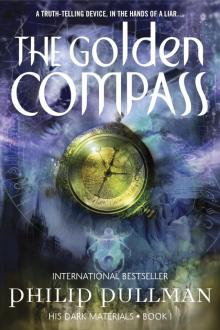 The Golden Compass
The Golden Compass The Ruby in the Smoke
The Ruby in the Smoke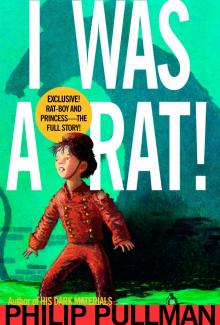 I Was a Rat!
I Was a Rat! Once Upon a Time in the North
Once Upon a Time in the North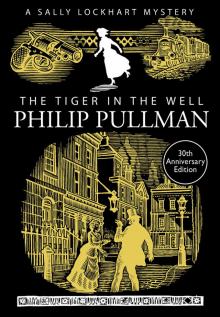 The Tiger in the Well
The Tiger in the Well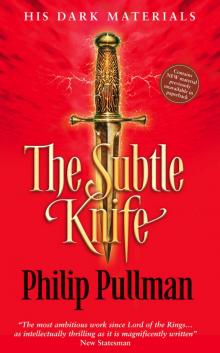 The Subtle Knife
The Subtle Knife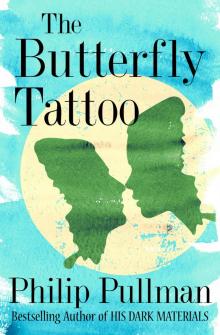 The Butterfly Tattoo
The Butterfly Tattoo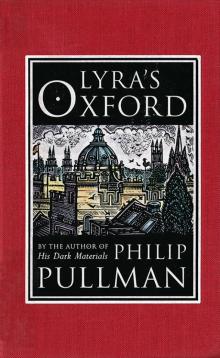 Lyra's Oxford
Lyra's Oxford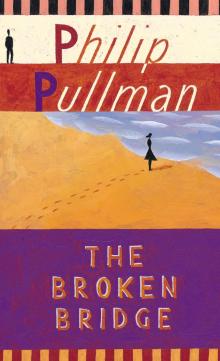 The Broken Bridge
The Broken Bridge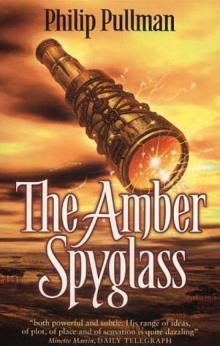 The Amber Spyglass
The Amber Spyglass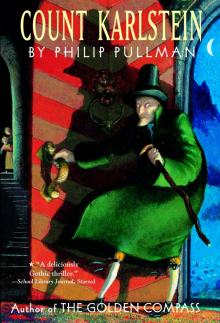 Count Karlstein
Count Karlstein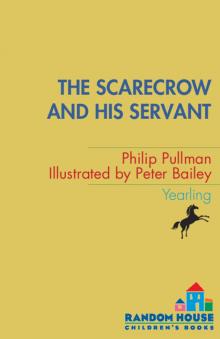 The Scarecrow and His Servant
The Scarecrow and His Servant The Shadow in the North
The Shadow in the North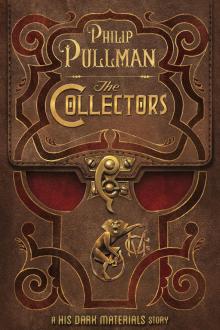 The Collectors
The Collectors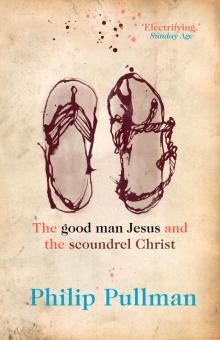 The Good Man Jesus and the Scoundrel Christ
The Good Man Jesus and the Scoundrel Christ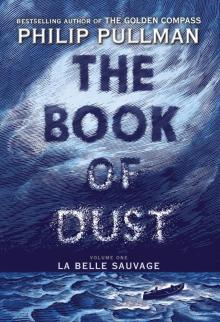 La Belle Sauvage
La Belle Sauvage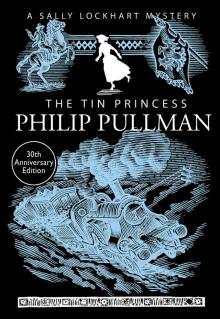 The Tin Princess
The Tin Princess The Firework-Maker's Daughter
The Firework-Maker's Daughter The Book of Dust: The Secret Commonwealth (Book of Dust, Volume 2)
The Book of Dust: The Secret Commonwealth (Book of Dust, Volume 2)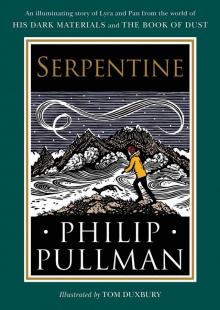 Serpentine
Serpentine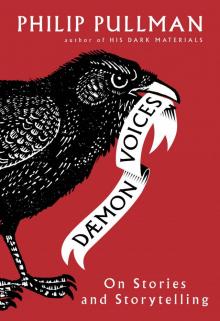 Daemon Voices
Daemon Voices The Amber Spyglass: His Dark Materials
The Amber Spyglass: His Dark Materials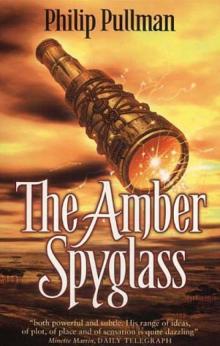 The Amber Spyglass hdm-3
The Amber Spyglass hdm-3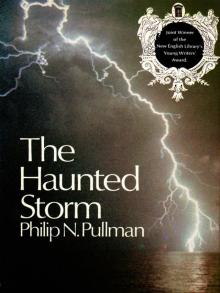 The Haunted Storm
The Haunted Storm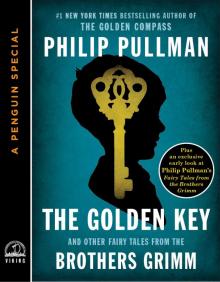 The Golden Key
The Golden Key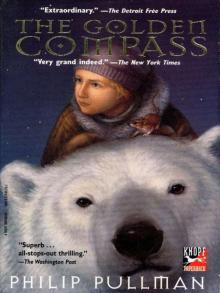 His Dark Materials 01 - The Golden Compass
His Dark Materials 01 - The Golden Compass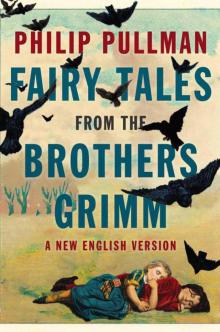 Fairy Tales from the Brothers Grimm: A New English Version
Fairy Tales from the Brothers Grimm: A New English Version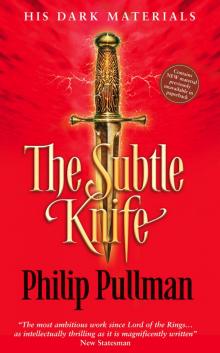 His Dark Materials 02 - The Subtle Knife
His Dark Materials 02 - The Subtle Knife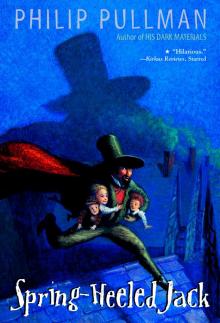 Spring-Heeled Jack
Spring-Heeled Jack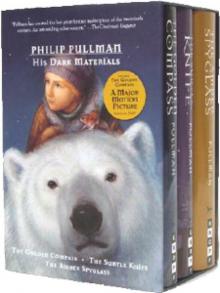 The Golden Compass hdm-1
The Golden Compass hdm-1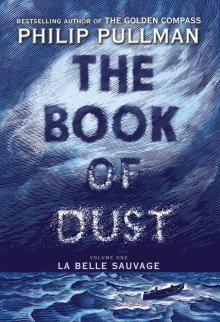 The Book of Dust, Volume 1
The Book of Dust, Volume 1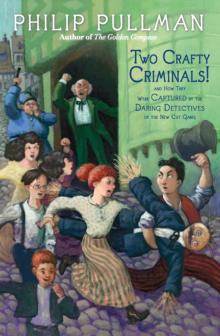 Two Crafty Criminals!
Two Crafty Criminals!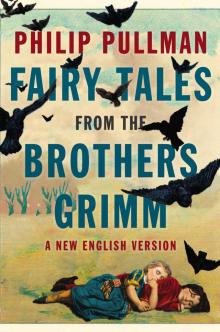 Fairy Tales from the Brothers Grimm
Fairy Tales from the Brothers Grimm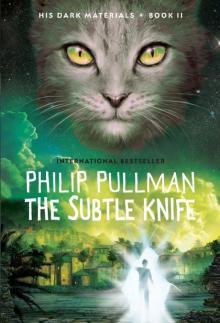 The Subtle Knife: His Dark Materials
The Subtle Knife: His Dark Materials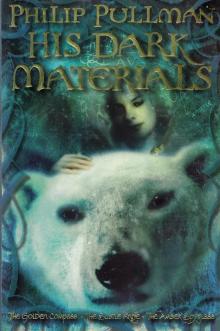 His Dark Materials Omnibus
His Dark Materials Omnibus The Golden Compass: His Dark Materials
The Golden Compass: His Dark Materials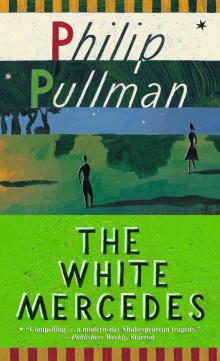 The White Mercedes
The White Mercedes